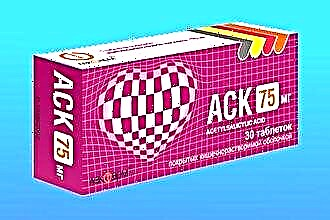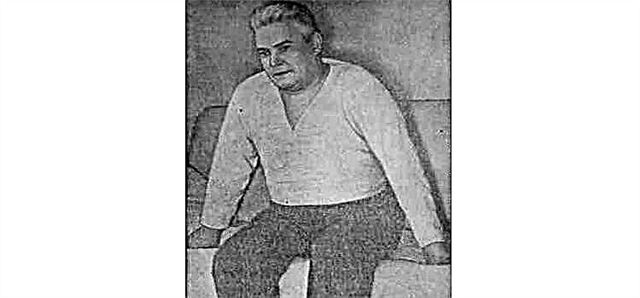Cough is a symptom that is a diagnostic sign of diseases of the respiratory and nervous system, pathology of the gastrointestinal tract, heart, the development of infectious and allergic diseases.
Bronchospasm - strong or mild, long-term or short-term - should always be considered as a symptom of the underlying disease. It is not a disease in its own right.
Causes
 External and internal adverse factors can cause a severe cough. Its appearance without a change in temperature indicates the onset of a latent inflammatory process or the development of a response to an irritant.
External and internal adverse factors can cause a severe cough. Its appearance without a change in temperature indicates the onset of a latent inflammatory process or the development of a response to an irritant.
Provoke a cough:
- polluted air with a large amount of dust, shavings, exhaust gases, toxic fumes, tobacco smoke;
- inhalation of a foreign body;
- allergens of plant or synthetic origin (plants, medicines, deodorants);
- ARVI;
- bronchitis, pneumonia;
- tuberculosis;
- whooping cough;
- neoplasms;
- bronchial asthma;
- systematic stress.
Bronchospasm is not a concern if it goes away after two to three days as foreign particles are removed from the respiratory tract. If the cough does not decrease, or if it intensifies even without a change in temperature, it is worth visiting a doctor.
Clinical manifestations
A severe cough without fever in an adult is characteristic of smoker's syndrome. Most often, bronchospasm appears in the morning hours and contributes to the release of sputum that has accumulated overnight. It can be repeated periodically throughout the day in the form of a cough. An exception is cough in people with more than 10-15 years of smoking experience: this bronchospasm persists throughout the day.
 The ingress of a foreign body into the respiratory tract causes the appearance of an acute severe cough. The attacks do not go away until the irritation of the respiratory receptors stops. The cough can end as suddenly as it appeared, in the case of the successful removal (coughing up) of a foreign body. With its deep movement, a dry strong cough transforms into a productive (wet) cough with the release of purulent sputum. In this period, with the development of a purulent-necrotic process, an increase in body temperature is possible.
The ingress of a foreign body into the respiratory tract causes the appearance of an acute severe cough. The attacks do not go away until the irritation of the respiratory receptors stops. The cough can end as suddenly as it appeared, in the case of the successful removal (coughing up) of a foreign body. With its deep movement, a dry strong cough transforms into a productive (wet) cough with the release of purulent sputum. In this period, with the development of a purulent-necrotic process, an increase in body temperature is possible.
The appearance of a severe cough with conjunctivitis, runny nose, edema, local skin reaction is a sign of exposure to an allergen. Bronchospasm disappears when the provoking factor is eliminated. Sometimes the use of antiallergic agents is required. In some cases, the systematic action of the allergen causes the development of asthma, accompanied by periodic severe coughing and asthma attacks.
With active immunity and high resistance of the body during the development of ARVI, a strong cough occurs without fever, which goes away on its own as it recovers. But in most cases, it turns into residual bronchospasm, which requires treatment.
Bronchitis is often accompanied by a severe productive cough that requires medication with mucolytics and expectorants. Its occurrence is also a positive sign in pneumonia, indicating the beginning of the resolution of the pathological process.
Tuberculous lesion of the lungs is manifested by a strong cough without fever with the release of characteristic sputum and a deterioration in the general condition of the patient. Bronchospasm makes itself felt in the morning: overnight there is an accumulation of decay products in the lungs, which the body needs to remove. The attack can last for quite some time. During remission, bronchospasms are insignificant.
Symptoms for dangerous diseases
A severe cough is often a residual symptom after whooping cough. In an adult, the disease passes in a latent form, which complicates timely diagnosis. After the end of the acute period of the disease and improvement in general well-being, a strong paroxysmal cough develops without any other symptoms.
 Another feature is a paroxysmal character with reprises - a difficult wheezing breath after several cough shocks. Often a cough attack leads to vomiting, shortness of breath, and the development of muscle pain. From several to 10-12 attacks are noted per day. Between them, the sick person feels satisfactory, leading a normal life.
Another feature is a paroxysmal character with reprises - a difficult wheezing breath after several cough shocks. Often a cough attack leads to vomiting, shortness of breath, and the development of muscle pain. From several to 10-12 attacks are noted per day. Between them, the sick person feels satisfactory, leading a normal life.
A dry, violent and excruciating cough is sometimes the only symptom of cancer of the larynx or trachea. It precedes later shortness of breath and progressive difficulty in breathing.
In oncology, bronchospasm has a systematic progressive character with the gradual appearance of purulent sputum, sometimes mixed with blood. With an increase in coughing, the general condition of the patient worsens. The body is gradually depleted. In some cases, in the early stages of cancer development, the cough weakens slightly or stops for a short time. Such a manifestation of the disease leads to an erroneous diagnosis - "bronchial asthma". Only a detailed study of the anamnesis and a thorough examination will clarify the situation.
In bronchial asthma, a strong cough is a consequence of a spasm of the small bronchi, which causes impaired breathing and a feeling of suffocation.
Associated signs:
- dyspnea;
- wheezing;
- chest pain (similar to heart pain);
- blueness of the lips, fingers;
- shortness of breath (expiratory dyspnea);
- inability to conduct a conversation, whistling inhalation and exhalation.
Bronchial asthma is much less common than asthmatic bronchitis. The disease has a rather characteristic clinical manifestation. A violent cough is present both during and between attacks.
 A violent, intermittent cough with a “metallic tinge” is often neurogenic. It appears suddenly, just as rapidly disappears. Registered in the daytime. At night and in a calm state it is completely absent. This is explained by the reaction of the nervous system to the action of a stress factor. Reducing cough is achieved by using sedatives, eliminating the stress factor, creating a calm, comfortable environment in which the person is.
A violent, intermittent cough with a “metallic tinge” is often neurogenic. It appears suddenly, just as rapidly disappears. Registered in the daytime. At night and in a calm state it is completely absent. This is explained by the reaction of the nervous system to the action of a stress factor. Reducing cough is achieved by using sedatives, eliminating the stress factor, creating a calm, comfortable environment in which the person is.
A strong cough in the form of its manifestation and the time of onset is:
- nighttime (bronchial asthma, whooping cough, tracheobronchitis);
- morning (tuberculous lung disease, asthma, bronchitis);
- daytime.
Excessively dry air in a room and the presence of an allergen (animal hair, dust mites in pillows and carpets) causes frequent, severe coughing throughout the day.
To reduce the manifestation of dry cough helps to humidify the air in the room, its frequent ventilation. Patients are advised to increase fluid intake and be outdoors more often, while avoiding hypothermia or overheating. The best time for walking is early morning and evening.
Breathing air at the sea, in a pine forest, near a waterfall, a river will help get rid of bronchospasm faster.
How to treat a severe cough
Before proceeding with the elimination of the cough reflex, you should be examined by a medical specialist and receive the necessary recommendations. Indeed, in some cases, drug treatment is not required. But untimely started or incorrect therapy often leads to undesirable consequences and complications.
A cure for a severe cough involves the use of antitussives, expectorants and mucolytic drugs.
Antitussives
 A dry, severe cough with signs of an attack and without sputum production requires the use of antitussives that suppress the cough center, but do not depress breathing. These drugs include "Sinekod", "Rengalin". They are used for whooping cough, inflammation of the larynx and trachea, which do not have bronchial glands and do not produce secretions.
A dry, severe cough with signs of an attack and without sputum production requires the use of antitussives that suppress the cough center, but do not depress breathing. These drugs include "Sinekod", "Rengalin". They are used for whooping cough, inflammation of the larynx and trachea, which do not have bronchial glands and do not produce secretions.
Antitussives are not used for coughing accompanied by sputum production in order to prevent the deposition of inflammatory products in the respiratory tract and the spread of the painful process to the lower respiratory system.
Similar drugs are also prescribed for cancer, bronchial asthma with an unproductive cough.
Mucolytics
Applied with a strong productive cough. Mucolytics help make the phlegm more fluid by decreasing its viscosity, which makes mucus easier to pass. At the same time, there is no increase in the amount of sputum, only its qualitative indicators change. Expectorant drugs stimulate the passage of mucus, increasing the motor activity of the ciliated epithelium of the bronchi. From this group of drugs, doctors often recommend Ambroxol, Lazolvan, ACC, Bromhexin, Sinupret, Prospan, Evkabal and others.
Important! Mucolytic and expectorant drugs should not be combined with antitussive drugs.
The success of therapy for severe cough depends on:
- timely identified and eliminated causes of bronchospasm;
- correct assessment of the form and course of the underlying disease;
- the adequacy of the prescribed treatment.



